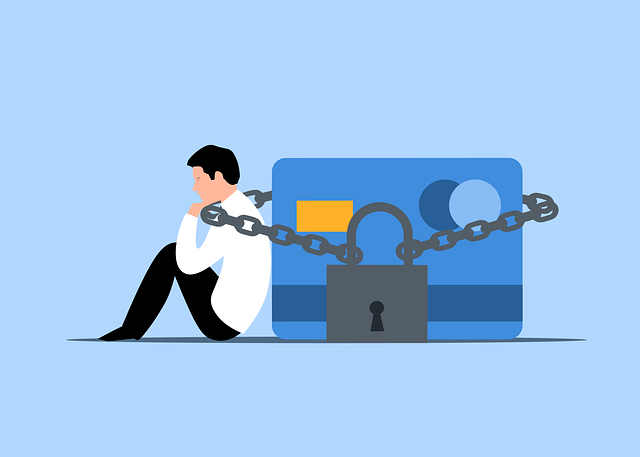Unsecured debt consolidation loans streamline repayment by combining multiple high-interest credit card debts into one low-interest loan, simplifying budgeting and saving money. Without requiring collateral, these loans rely on borrower creditworthiness, offering flexible terms and competitive rates. Assessing financial health and understanding loan types (secured vs unsecured) are crucial before applying to ensure this strategy aligns with debt elimination goals. Unsecured loans eliminate asset risk while fostering good credit standing through responsible repayment.
Struggling with multiple credit card debts and high monthly payments? Credit card debt consolidation could be the solution you need. This article provides comprehensive tips and strategies for reducing your monthly payments through unsecured debt consolidation loans. We’ll guide you through understanding these loans, assessing your financial situation, comparing secured vs. unsecured options, and effective maximization techniques to ensure success in consolidating your debts.
- Understanding Unsecured Debt Consolidation Loans: An Overview
- Benefits of Debt Consolidation: Lowering Monthly Payments
- Assessing Your Financial Situation for Loan Eligibility
- Comparing Loan Options: Secured vs Unsecured Consolidation
- Effective Strategies to Maximize Debt Consolidation Success
Understanding Unsecured Debt Consolidation Loans: An Overview
Unsecured debt consolidation loans are a popular choice for those looking to simplify their repayment process and reduce monthly outgoings. As the name suggests, this type of loan doesn’t require any collateral, which means borrowers don’t risk losing assets like homes or cars if they’re unable to repay. Instead, the loan is based solely on the borrower’s creditworthiness and ability to make repayments. Lenders offer these loans with competitive interest rates and flexible terms, allowing individuals to combine multiple high-interest debts into a single, more manageable payment.
This strategy not only simplifies budgeting by consolidating debt into one monthly payment but also helps borrowers get out of debt faster by focusing on paying off the loan rather than many smaller balances. It’s crucial to explore this option and understand the terms and conditions before applying to ensure it aligns with your financial goals and reduces your overall borrowing costs.
Benefits of Debt Consolidation: Lowering Monthly Payments
Debt consolidation is a powerful tool for managing credit card debt. One of its key advantages is the significant reduction in monthly payments. By combining multiple credit card balances into a single loan with a lower interest rate, borrowers can simplify their financial obligations and ease the burden of numerous minimum payments. This strategy allows for more manageable cash flow, making it easier to stay on top of repayments without the constant stress of multiple due dates.
An unsecured debt consolidation loan, as the name suggests, does not require collateral, which means there’s no risk of losing personal assets if repayment becomes challenging. It provides an opportunity for individuals to gain control over their finances and work towards complete debt elimination more efficiently. With a lower interest rate than individual credit cards, this approach can save money in the long run, making it an attractive solution for those looking to streamline their debt management process.
Assessing Your Financial Situation for Loan Eligibility
Assessing your financial situation is a crucial step before applying for a debt consolidation loan, especially when it comes to unsecured loans. This process involves evaluating your current income, expenses, and existing debts to determine your eligibility and the potential terms of the loan. By understanding your financial standing, you can make informed decisions about consolidating your credit card debt.
Unsecured debt consolidation loans are those that do not require collateral, meaning no assets are at risk if you fail to repay. Lenders primarily consider your credit score, income stability, and debt-to-income ratio to approve such loans. A comprehensive assessment will help identify areas for improvement, allowing you to enhance your chances of securing favorable loan terms with lower interest rates.
Comparing Loan Options: Secured vs Unsecured Consolidation
When considering credit card debt consolidation, understanding the differences between secured and unsecured loan options is crucial. A secured consolidation loan requires you to put up collateral, typically your home or a vehicle. This type of loan usually comes with lower interest rates because the lender has something to gain in case of default. However, if you fail to make payments, you risk losing your collateral.
On the other hand, an unsecured debt consolidation loan doesn’t require any collateral and is based solely on your creditworthiness. While this means higher interest rates, it also eliminates the risk of losing assets. Unsecured loans are a good fit for those looking to simplify their finances without adding extra pressure through potential asset loss.
Effective Strategies to Maximize Debt Consolidation Success
Debt consolidation is a powerful tool to simplify your financial obligations and lower monthly payments. To maximize success, consider an unsecured debt consolidation loan as a strategic option. Unlike secured loans that require collateral, unsecured loans offer flexibility as they don’t tie up assets like your home or car. This type of loan aggregates your existing credit card debts into a single, more manageable payment with potentially lower interest rates.
A key strategy is to compare offers from multiple lenders to find the best terms suited to your financial profile. Additionally, aligning repayment terms with your budget ensures consistent, on-time payments, fostering good credit standing and enabling you to pay off the loan faster. Prioritizing high-interest debts first within your consolidation plan can also save you money in the long run.
Debt consolidation can be a powerful tool for managing credit card debt. By understanding unsecured debt consolidation loans and implementing effective strategies, you can reduce monthly payments and gain control over your finances. Assessing your financial situation is crucial for determining eligibility, while comparing loan options ensures you choose the best fit. With dedicated effort and smart choices, consolidating your debt can lead to significant savings and a brighter financial future.
